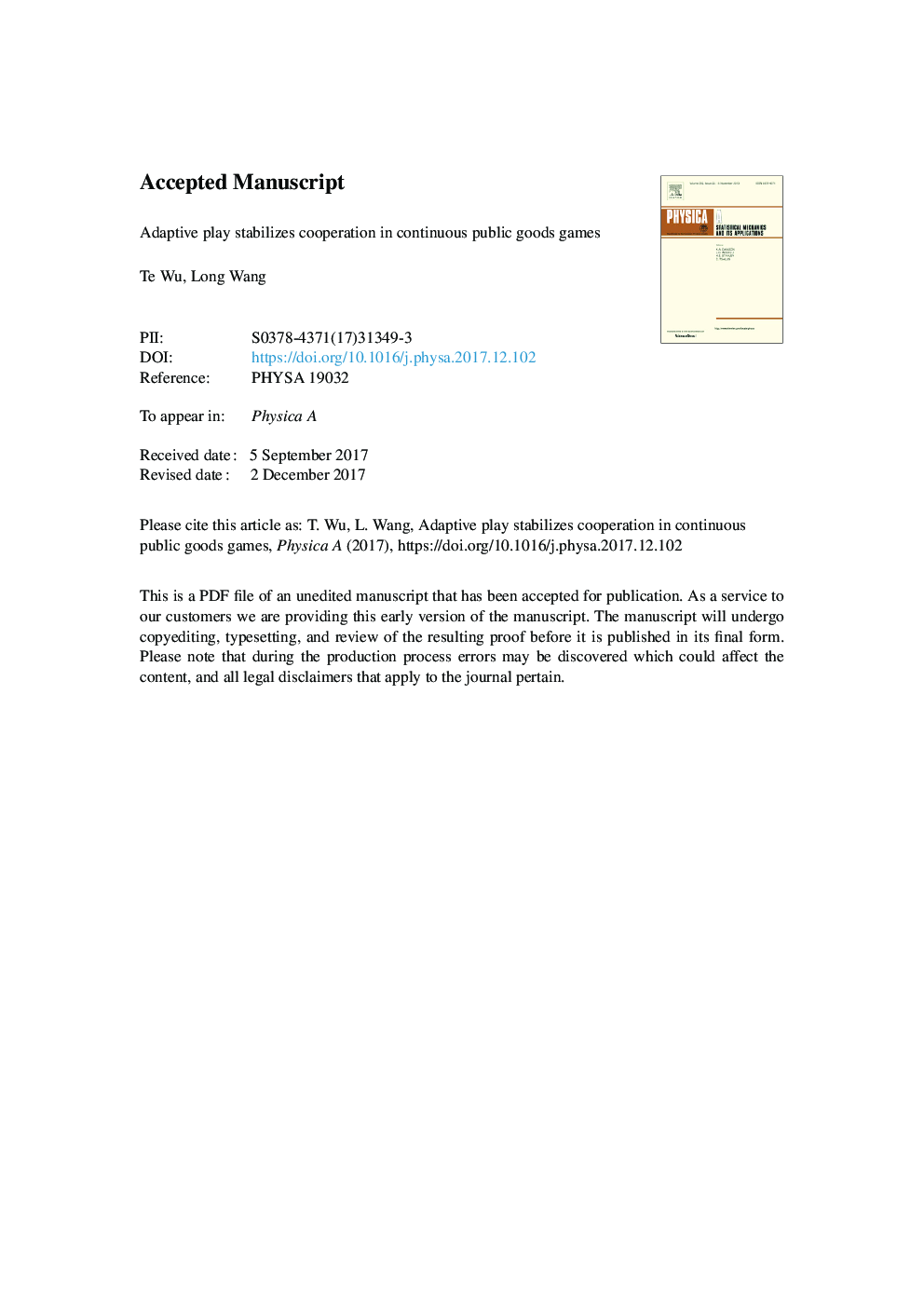| Article ID | Journal | Published Year | Pages | File Type |
|---|---|---|---|---|
| 7375983 | Physica A: Statistical Mechanics and its Applications | 2018 | 23 Pages |
Abstract
We construct a model to study the effects of repeated interaction on the evolution of cooperation in continuous public goods games. Instead of preassigning the duration of repeatedness, the likelihood of group entering next round interaction is positively dependent on the group's current cooperativeness. Meanwhile, when the disturbance happens, the interaction terminates. Under rare mutations, we show that such adaptive play can lead to the dominance of full cooperative state for weak disturbance. For fairly strong disturbance, all-or-none cooperative states share higher fractions of time in the long run, results similar to the ones reported in the study (Pinheiro et al., 2014) while differing from the ones reported in another relevant study (Van Segbroeck et al., 2012), although only strategy space and way determining next round vary. Our results remain valid when groups enter next round with a given probability independent of groups' cooperativeness. In the synergic public goods games, the positive effects of repeated interactions on promoting cooperation is further strengthened. In the discounted public goods game, only very weak disturbance can lead to the dominance of full cooperative state while fairly strong disturbance can favor both full cooperative state and a partially cooperative state. Our study thus enriches the literature on the evolution of cooperation in repeated public goods games.
Related Topics
Physical Sciences and Engineering
Mathematics
Mathematical Physics
Authors
Te Wu, Long Wang,
